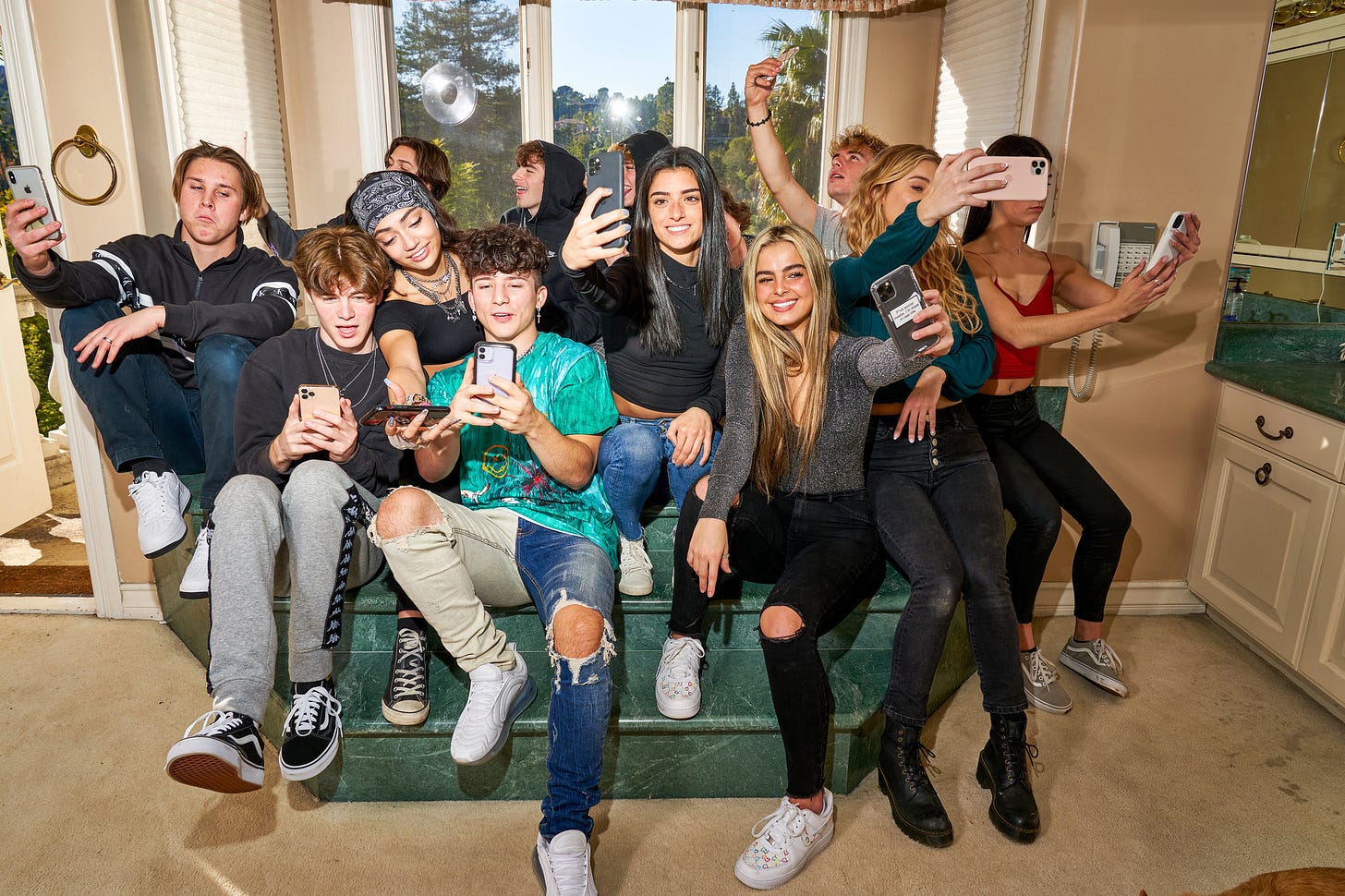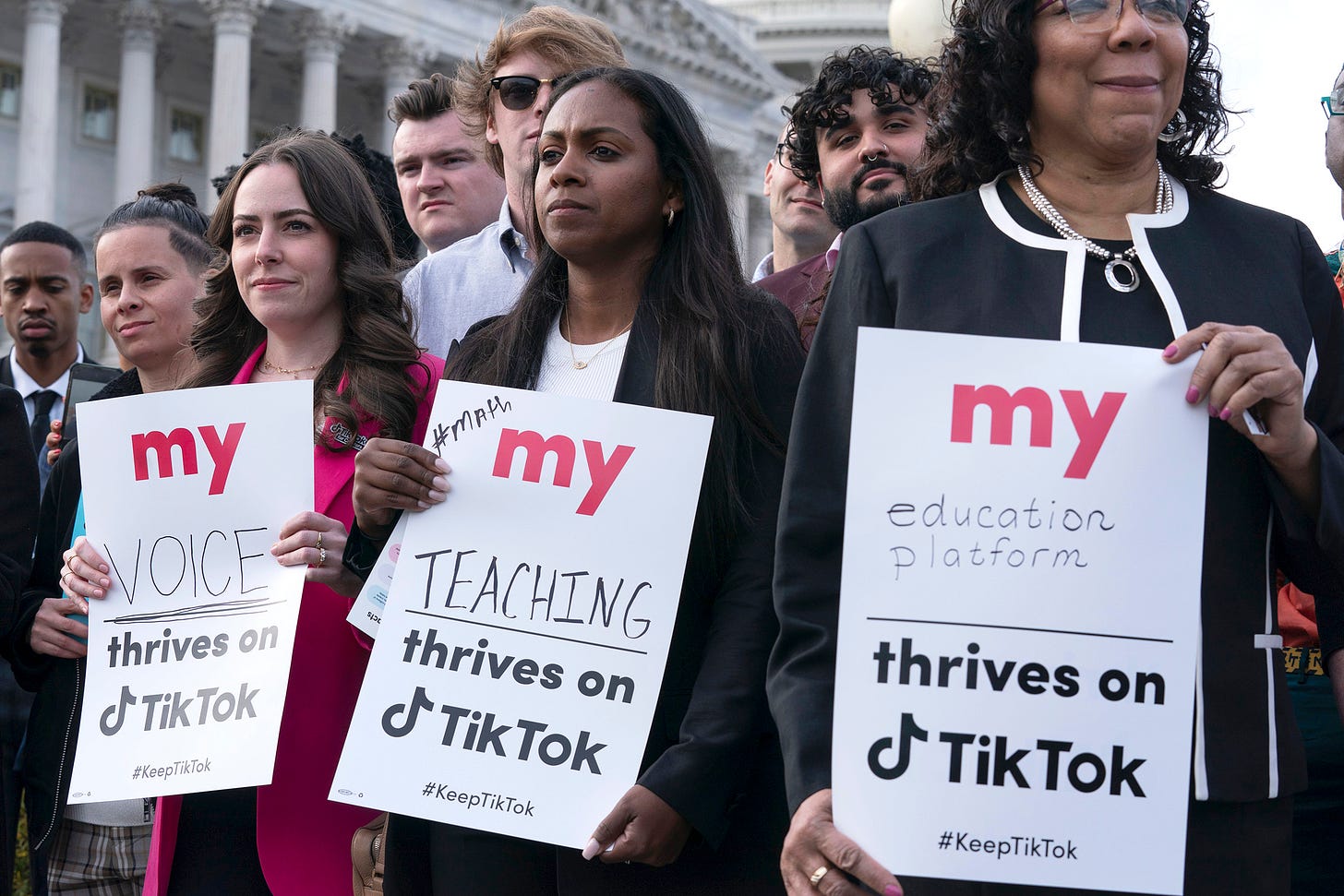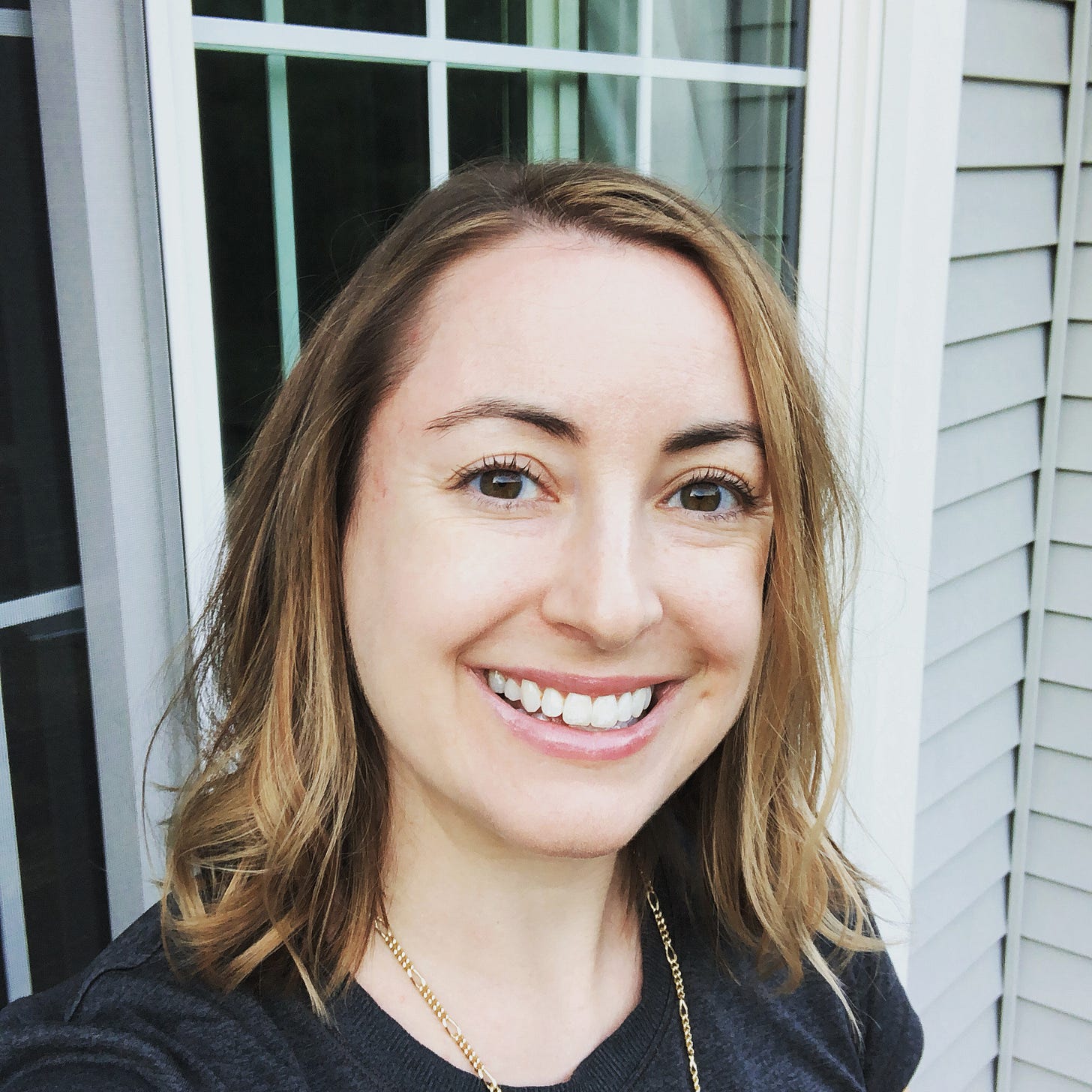Six Questions with Author and BookTok Expert Leigh Stein
She demystifies the platform for us
Over the past three years, TikTok, the video-based social media app, has become a driving force in the publishing industry. BookTok, the nickname for the part of TikTok where users talk about the books they’re reading and loving, has catapulted books such as Ali Hazelwood’s The Love Hypothesis and The Atlas Six by Olivie Blake, to fame. It also transformed Colleen Hoover from a relatively unknown self-published author to a writer who has dominated the NYT bestseller list for more than a year. (As I write this, Hoover holds six of ten spots on the print and e-book fiction list.)
I’m not on TikTok. I occasionally see videos when they hit Twitter or a friend texts them, but I’m fascinated by anything that 1) encourages people to read and 2) helps people find the right books for them. So last summer, I took a class Leigh Stein taught about how authors could succeed on TikTok.
Leigh, the author of Self Care, is currently writing a novel set in a TikTok house (yes, I know, I can’t wait to read it) and has spent a lot of time on the platform, getting to know it and understanding how BookTok works. She was kind enough to chat with me about what we should all know about BookTok. Our conversation has been edited and condensed for clarity.
Let’s start simple. What is BookTok and what’s popular on it?
BookTok is a corner of TikTok where book lovers share their love of books. The audience on BookTok is similar to TikTok, so it’s young people. Half of TikTok users in the U.S. are under 25. A lot of the users are young women, but not exclusively. I joke that I'm the I'm the ancient crone of BookTok.
When people think of BookTok, they think of certain breakthrough authors or titles. They might think of Colleen Hoover, a best-selling author of dark romance novels. They might think of Taylor Jenkins Reid, who writes upmarket fiction. There have also been other popular titles like Madeline Miller's The Song of Achilles, which is a retelling of the story of Achilles. There are also popular fantasy series by Sarah J. Maas and Leigh Bardugo.
What I got really interested in is the more literary fiction corner of BookTok. There’s a whole community dedicated to reading and talking about litfic. They do cool things. During August, women in translation month, they read a ton of books from Europa editions and Breasts and Eggs by Mieko Kawakami.
There have been tons of articles about BookTok. What do they get wrong?
One thing people get wrong over and over again is they say it’s the same 20 books getting all the attention on TikTok. If you’re only seeing the same 20 books, you haven’t spent much time on the app and you haven’t searched for the books you’d like to read. If you’re interested in a niche book, search for it and you’ll find your corner of TikTok.
It’s important to know that TikTok is recommendation media, not social media. It’s not showing you videos from the people you know. It’s showing you videos based on other videos you previously liked. So, if you get on TikTok and see certain popular books and don’t seek out different books or say ‘no, I don’t like this,’ you’re going to miss all the diverse reading experience available to you.
I get book recommendations for books I've never heard of in my life. And I'm someone who's in the publishing industry who's constantly hearing about new releases.
In general, I have a lot of frustration with how TikTok is covered in the media. It's either by journalists who aren't on TikTok, so they don't know what it's like, or it's by people who just haven't spent enough time to see what a unique place it is. It’s like the difference between going somewhere on vacation for a week versus moving there. If you go there for a week, you're going to have a certain experience as a tourist versus if you actually spend time and live there and make friends with creators. When I wrote my article on TikTok I heard from so many members of the community thanking me for interviewing them. A lot of the BookTok-ers feel really defensive because there are all these articles written about them, but the journalist never talked to them, because they just write about the culture.
Speaking of diversity, a common criticism of BookTok is that only white authors succeed on it. Is that your experience?
Embedded in the myth that BookTok is the same 20 books is the idea that they’re all written by white women — Collen Hoover, Taylor Jenkins Reid, Emily Henry. Those are the heavy hitters.
There are some women of color who have blown up on BookTok. Bolu Babalola’s Honey and Spice has done well. Kennedy Ryan is a successful Black romance novelist, but they haven’t hit the best seller list the same way the white women have. So, there’s definitely a critique to be made there.
That said, if you engage with more creators of color, you will see more diverse books.
How did you get interested in TikTok?
I have been extremely online since the late 90s. The internet is kind of my beat. My novel Self Care was a satire of the milieu of Instagram.
The novel that I'm working on right now is set in a TikTok hype house. I was reading and studying the Gothic novel, and what I realized about the Gothic novel is you need a reason that the woman can't leave the house. That was easy in the 19th century when women didn't have very many options. You got married, you moved into a house and that was pretty much it for someone like Jane Eyre. But how do you do that in the 21st century? You need a reason that everyone's in the house. I realized ‘Oh. This could be one of those TikTok hype houses where all the creators live in the same mansion together and they create content.’ This was very popular during the pandemic. It's not as big right now. But for my purposes, it doesn't matter because I'm setting [my story] in a kind of decaying mansion, a D-list hype house.

But then I realized, I had to learn TikTok. I dreaded it. It didn't come naturally to me. I don't watch YouTube videos. I don't watch a lot of video content. I either want to watch TV or want to read a book. Finally, I realized I need to hire someone to help me with this, so I hired a 22-year-old who had just graduated from college to hold my hand walk and me through TikTok.
Then I started getting really excited about TikTok because I think it's a creative and authentic place. The way I see it, Instagram is a place where Millennials are professional, they want to look good, with good makeup and outfits from Rent the Runway. The bar is high on Instagram. On TikTok, it's just normal girls like with wet hair from the shower and pimple patches like telling you about their day. There's something very real and raw about it. I relate to these girls, even though I'm an ancient, ancient crone.
There’s talk on Capitol Hill about banning TikTok. What do you think about those efforts?
I’ll be disappointed if it gets banned. It’s an intergenerational conflict. I feel like so many of our legislators are old and don’t understand the internet. That the fate of this platform is in the hands of people who don’t understand it is frustrating.
I’m not a national security expert, so I can’t speak to that but some of the criticisms seem overblown. It does seem unfair that they would go after TikTok and not Meta because Facebook isn’t a perfect social media platform either. It seems to me we should have standards that we apply across the board to big tech companies.

My theory is that after learning the difficulty of regulating a company like Meta, we haven’t been able to do it for years, that it makes a Chinese company an easy target for a ban. It’s easier to ban it than to do the harder work of figuring out how we want to regulate Big Tech.
It’s going to be a huge loss to publishing if TikTok goes away. Nielsen UK estimates that TikTok is driving 3% of all book sales. Losing TikTok would get at the bigger problem of discoverability — how do people hear about new books?
The media industry has collapsed. Substack is an answer, but it’s still a similar thing where you have individual creators creating these niche publications. TikTok has the power of the algorithm to recommend things. It’s a platform where word-of-mouth can happen.
The vibe on BookTok right now is morose. I just watch video after video of these young women saying, ‘I only read six books in March.’ It’s sad because it was such a fun, energetic, creative, funny, playful place to spend time on the internet talking about books.
Last question, any books you want to recommend?
I just read On Writing and Failure by Stephen Marche. It’s very tiny and very slim and if you're a writer, I can't recommend it enough.
In a similar vein, I want to recommend Dana Maier’s Skip to the Fun Parts. It’s brutally honest and so fun. It’s an illustrated book about creativity, but there’s no advice in it, just commiseration.
Thanks to Leigh for talking and becoming the first ever two-time What To Read If interviewee. You can buy her books here, follow her on Instagram and TikTok (of course) and subscribe to her newsletter.
What to Read If is a free weekly book recommendation newsletter. Need a rec? Want to gush about a book? Reply to this email, leave a comment or find me on Twitter @elizabethheld.
If you’re reading this on Substack or were forwarded this email, and you’d like to subscribe, click the button below.
Disclosure: I am an affiliate of Bookshop.org and I will earn a commission if you click through and make a purchase.






Thanks for having me Elizabeth! If anyone has questions about BookTok/TikTok, I can (try to) answer in the comments!
This was so interesting, thanks so much. I especially liked Leigh's comments about people having opinions on things they've never seen and know nothing about.